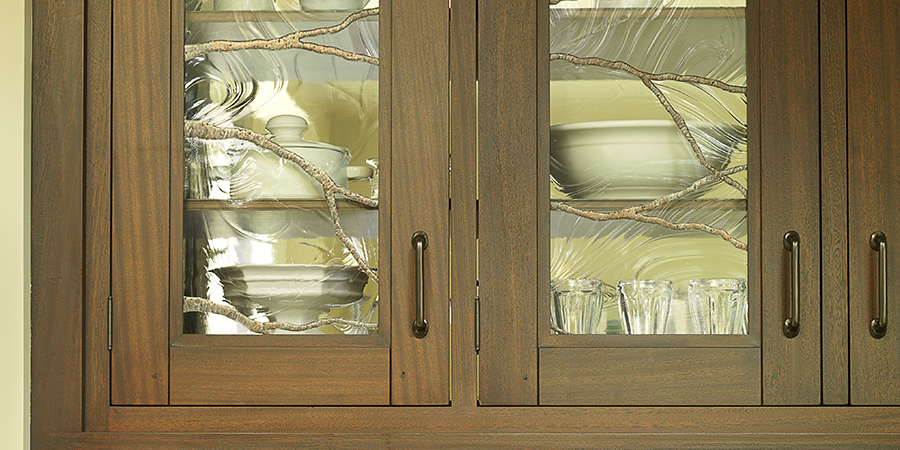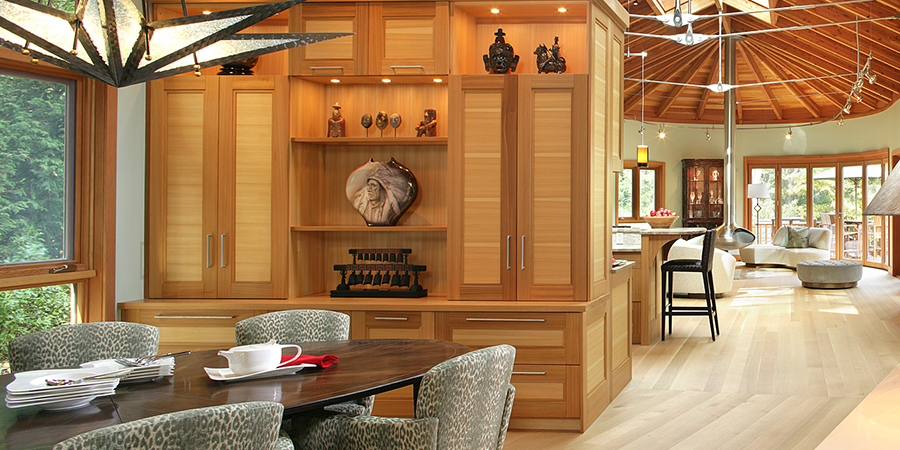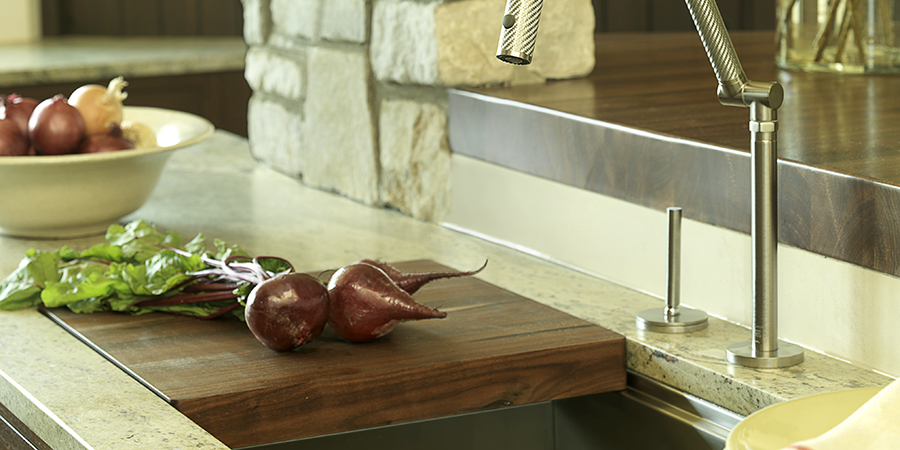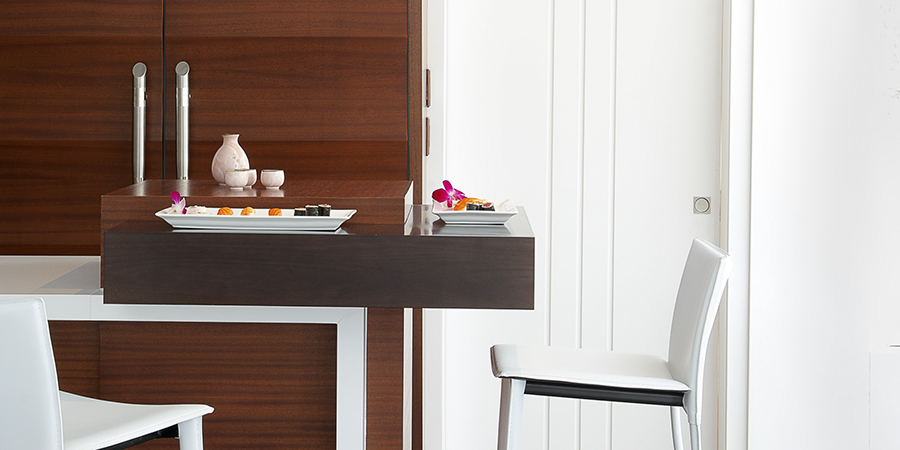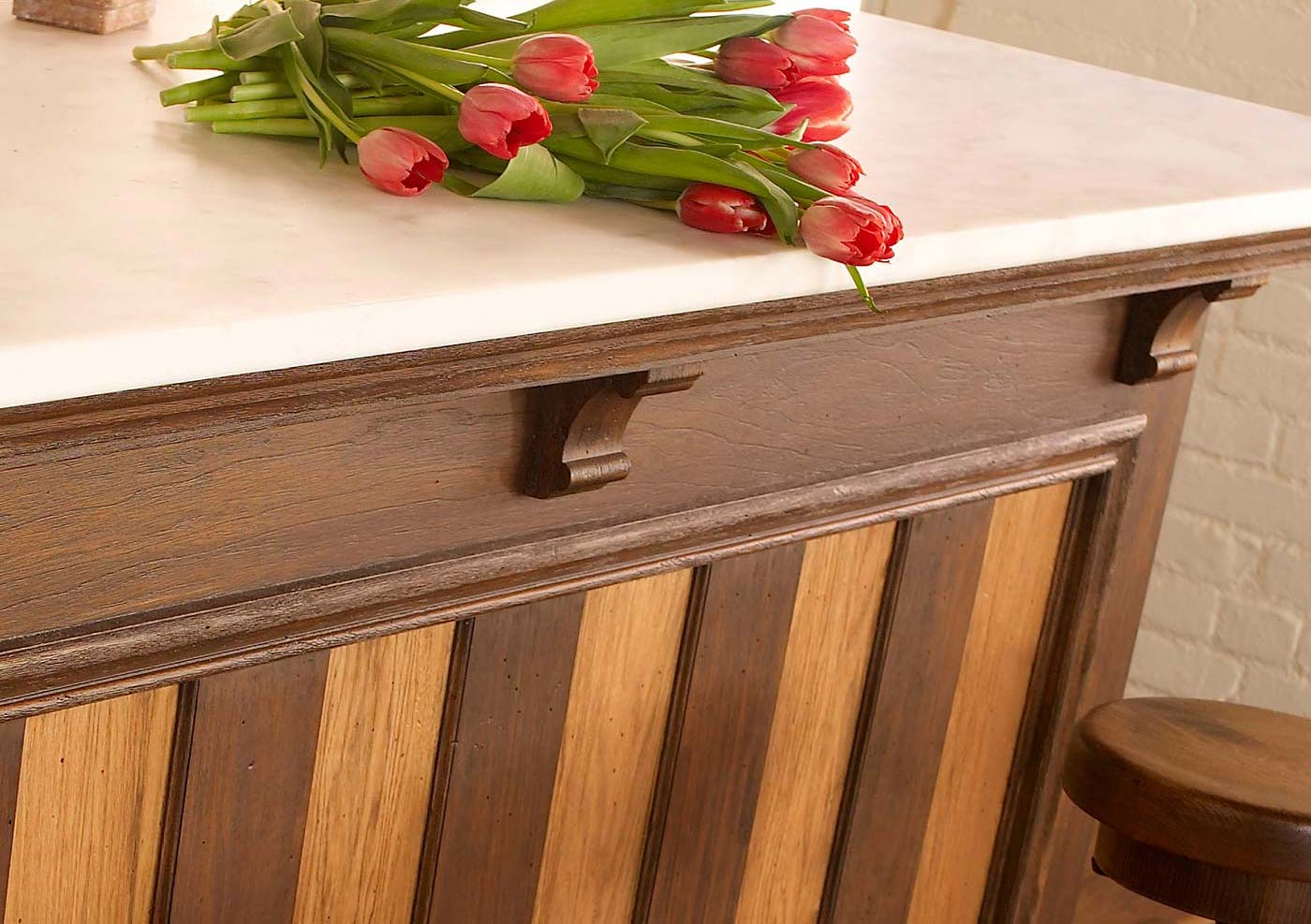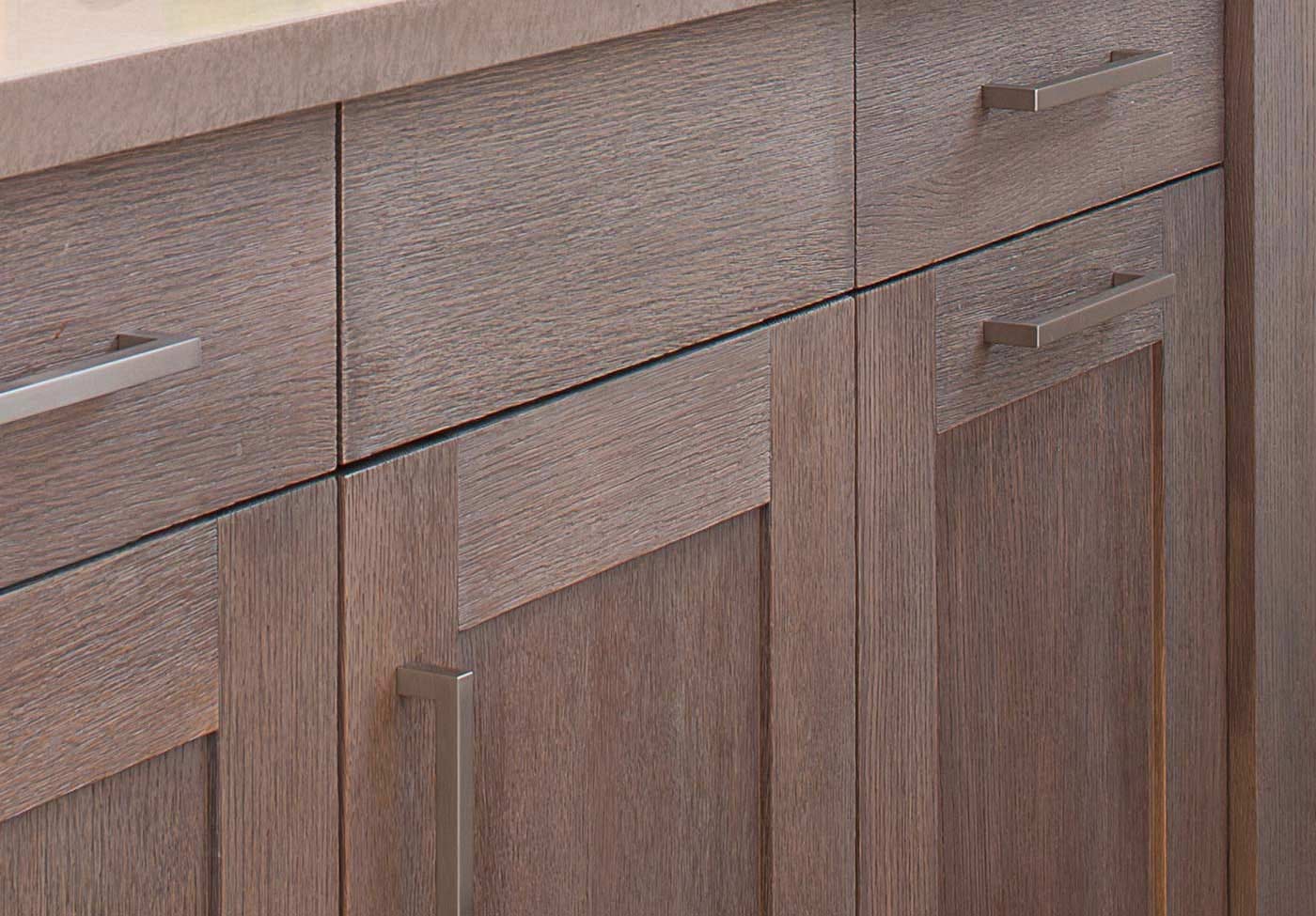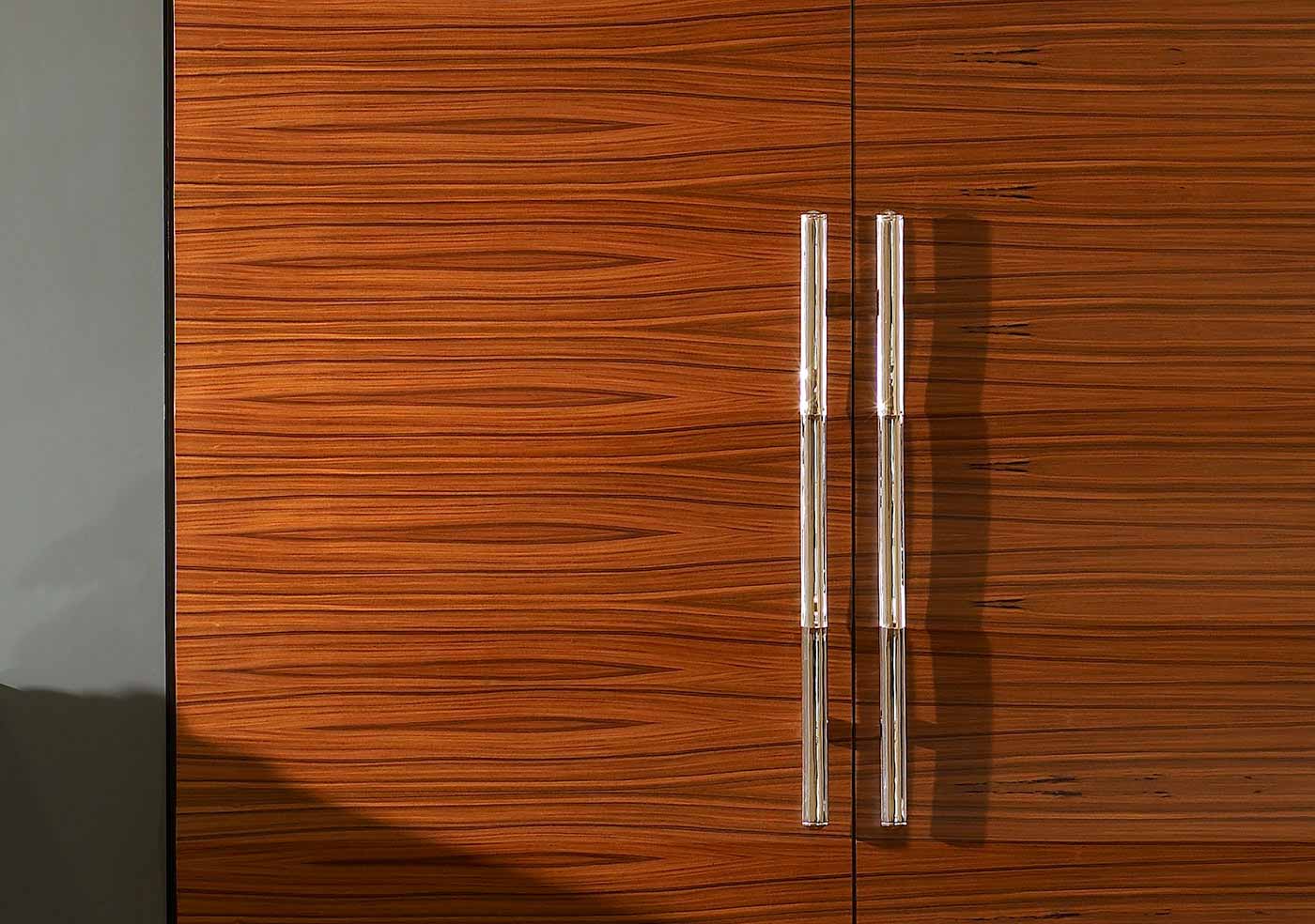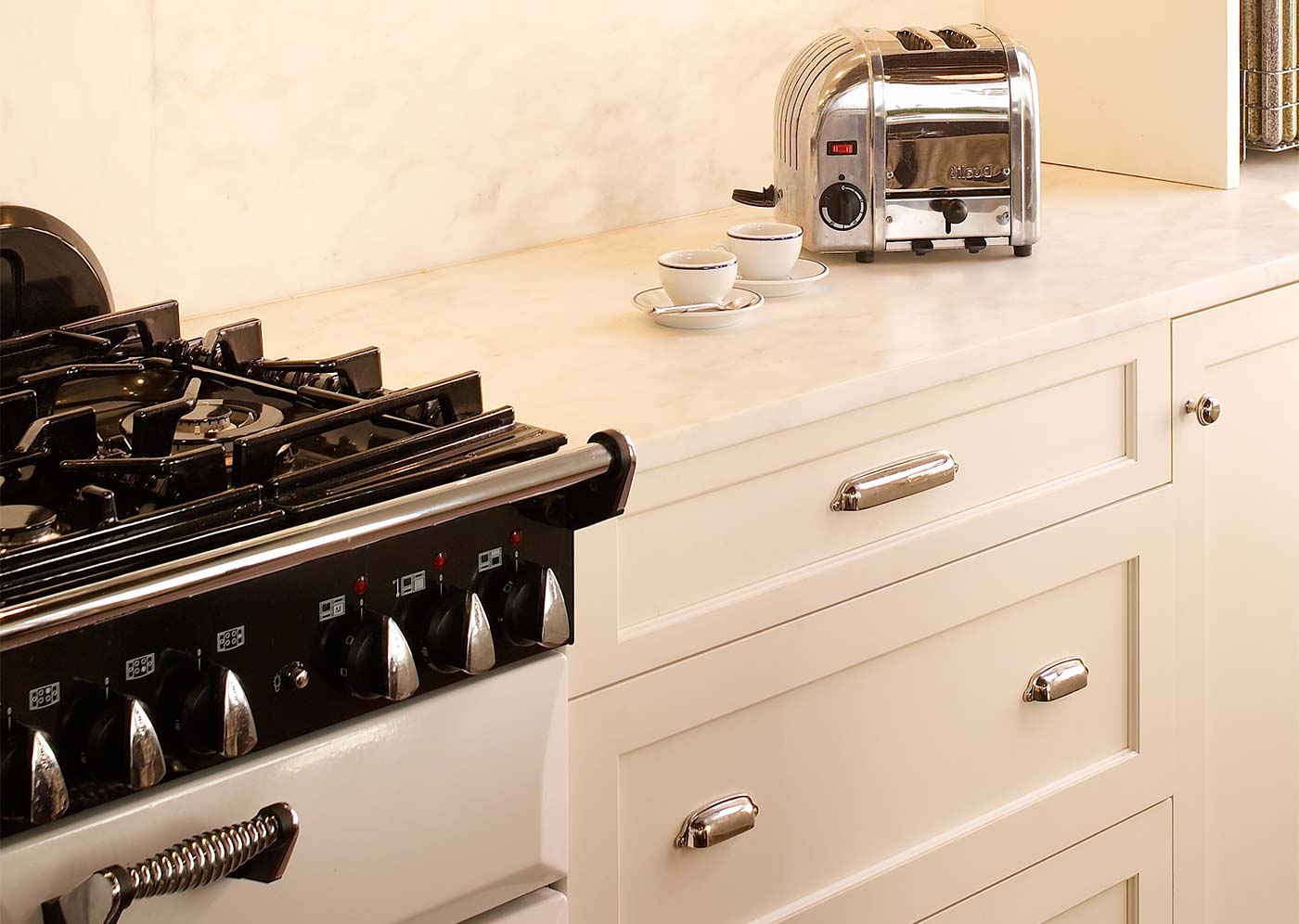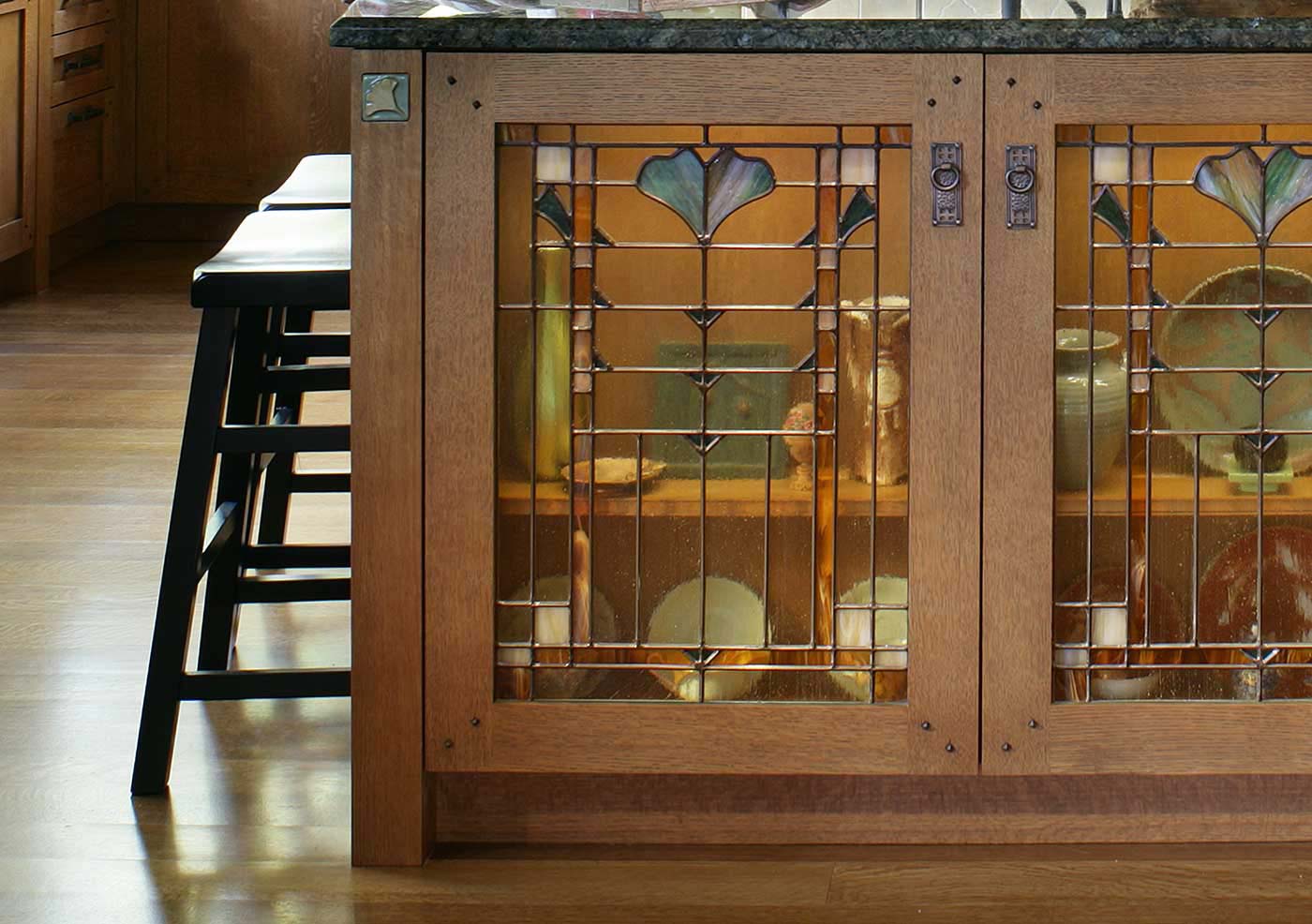Environmental Stewardship
At DRAPER♦DBS, we strive to create the highest quality products possible in an environmentally conscious manner. All of our cabinetry is available with ecologically responsible elements so you can go green without compromising exceptional beauty.
WHAT IS LEED?
LEED stands for Leadership in Energy & Environmental Design. It’s a green building certificaton system developed by the U.S. Green Building Council. It certifies residential and commercial buildings that are designed and built to meet multiple standards in categories relating to energy efficiency, decreasing emissions, and reducing environmental impact.
HOW WE QUALIFY
DRAPER♦DBS cabinetry qualifies for LEED credits in two categories:
Materials & Resources
- Rapidly Renewable Materials
Fast-growing wood species such as Bamboo, Lyptus, and Ribbon Stripe Sapele qualify in this category. - Certified WoodDRAPER♦DBS purchases from lumber suppliers that are certified by the Forest Stewardship Council (FSC), which sets standards for responsible forest managment.
- Regional Materials
Some customers may qualify for this category, which supports reducing the environmental impacts that result from transportation from production site to final location.
Indoor Environment Quality
- Low-Emitting Materials: Adhesives and Sealants DRAPER♦DBS offers adhesives and sealants that meet or exceed the emission standards established by the California Air Resources Board (CARB, a division of the state’s Environmental Protection Agency) and so qualify for LEED credits.
- Low-Emitting Materials: Paints and Coatings DRAPER♦DBS offers paints and coatings that meet or exceed the low-emission standards established by CARB.
- Low-Emitting Materials: Composite Wood & Agrifiber Products
All DRAPER♦DBS plywood and fiberboard are CARB-compliant.
WHAT IS FORMALDEHYDE?
Formaldehyde is a naturally occurring chemical compound. It’s produced by the human body and plants on a daily basis. It is a common component of many household products, like cleaning solutions, clothing, and plastics.
WHERE IS IT FOUND?
Formaldehyde occurs naturally in the environment with natural processes contributing up to 90% of formaldehyde in the atmosphere. All wood species contain and emit small amounts of formaldehyde. An oak tree emits 9 parts per billion of formaldehyde. It is also found naturally in a wide range of fruits, vegetables, seafood, meats, and coffee. (KCMA.org)
HOW IS IT USED?
Formaldehyde is a widely used biologic preservative (embalming fluid) used in the production of plastic products, medicine, cosmetics. furniture. and textiles, among hundreds of products. (KCMA.org)
IS FORMALDEHYDE BAD FOR YOU?
Formaldehyde is a volatile organic compound (VOC). Like other common VOCs, such as those found in many household products, formaldehyde can have negative health effects when encountered in very large quantities.
IS IT REGULATED?
Yes. The California Air Resources Board (CARB) established that a safe exposure to formaldehyde emissions is below 0.05 parts per million. The Kitchen Cabinet Manufacturers Association’s (KCMA) Environmental Stewardship Program (ESP) has also adopted CARB’s guidelines. Under its Air Quality category, the ESP ensures the use of low formaldehyde (<0.05 ppm) particleboard, MDF, and plywood.
WHY IS FORMALDEHYDE IN CABINETRY?
All wood species contain and emit small amounts of formaldehyde. Composite wood extends the yield from the harvest of trees, and makes cabinetry more affordable. When the naturally occurring formaldehyde in wood combines with urea, another naturally occurring chemical compound, the reaction creates a resin that serves as a permanent adhesive. The best performing adhesives used to make composite wood contain small amounts of urea-formaldehyde to achieve the durability and performance expected by consumers in the kitchen environment. (KCMA)
CAN I BUY FORMALDEHYDE-FREE WOOD?
No. Small amounts of formaldehyde are naturally emitted by wood, so no wood product can ever truly be formaldehyde-free. Products claiming to be “formaldehyde-free” are actually saying that no urea-formaldehyde was added to the natural levels of formaldehyde already found in the product.
WHAT IS NO-ADDED UREA-FORMALDEHYDE?
No-added urea-formaldehyde (NAUF) describes materials that have not added any additional urea-formaldehyde in the manufacturing process. NAUF products use alternative adhesive components, such as soy.
WHAT DOES DRAPER♦DBS OFFER?
We offer our customers and operate under the gold standard of no-added urea-formaldehyde cabinets. We are careful to supply only NAUF plywood and fiberboard by offering products like PureBond, which utilizes soy-based adhesives in construction. Clients can be assured that all adhesives and sealants we use meet or exceed the low-emission standards established by CARB.
WE TAKE PRIDE
In producing exceptional quality cabinetry for our clients today, built to last for their generations to come, in a manner that is mindful and protective of the environment.
WE DONATE
The sawdust from our shop to a local dairy farm for bedding and compost. Their 50+ dairy cows are cared for in “compost bedded packs,” which allows the cows to move freely and eat, drink, and rest at will. Our sawdust keeps their bedding area dry and soft while the decomposition process is at work, and it later becomes compost for the farm’s crops. The compost also reduces the ammonia emissions from the cattle.
The farm was awarded Bucks County’s Conservation Farmer of the Year award in 2012. To DRAPER♦DBS, the farm says, “Thank you for enabling us to grow and feed a greener tomorrow!”
WE ENSURE
Our solid wood waste is taken by our trash hauler, and ground up and recyled as yard mulch.
WE SUPPORT
Habitat for Humanity and local Vocational Technical schools with donations of excess lumber. We are proud to support the education of the artisans of tomorrow!
